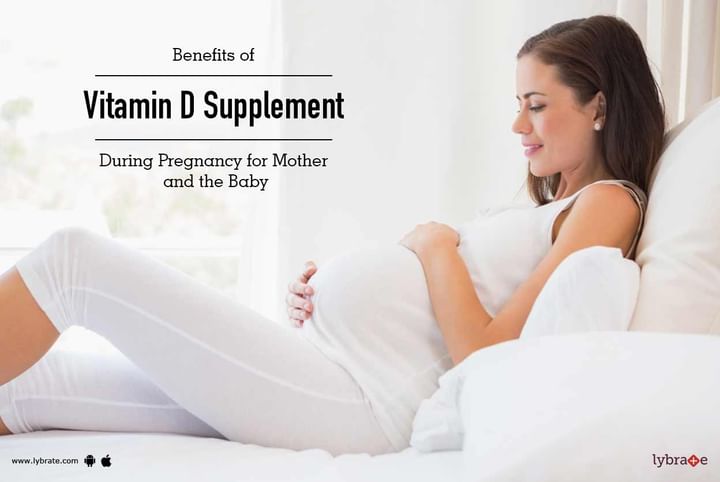Benefits of Vitamin D Supplement During Pregnancy for Mother and the Baby
Vitamin D and pregnancy go hand in hand. Expecting mothers need to ensure they get the recommended amounts of vitamin D during pregnancy for the healthy development of the baby as well as their own well-being.
Vitamin D is a fat-soluble vitamin obtained mostly from consuming fortified milk or juice, fish oils and dietary supplements. It also is produced in the skin by exposure to sunlight. Vitamin D, which is ingested or produced in the skin must undergo hydroxylation in the liver and kidney to promote absorption of calcium from the gut to enable normal bone mineralization and growth. Severe maternal vitamin D deficiency has been associated with congenital rickets and disordered skeletal homeostasis coupled with fractures in the newborn during pregnancy. Vitamin D is necessary for the metabolism and absorption of phosphorus and calcium. Many studies are finding a connection between low serum vitamin D levels and an increased risk of certain types of autoimmune disease, cancers, insulin resistance, neurological disease and cardiovascular disease.
Latest studies have shown that vitamin D deficiency is common during pregnancy especially among women residing in northern latitudes, living in cold climates or wear sun and winter protective clothing and ethnic minorities, especially those with darker skin. As the vitamin D level of newborn is largely dependent on maternal vitamin D status, the infants of mothers with vitamin D deficiency are also at risk of vitamin D deficiency. Inadequate level of vitamin D can lead to abnormal bone growth, fractures, or rickets in newborns. Deficiency of vitamin D leads to a higher risk of pregnancy complications like gestational diabetes, premature birth and low birth weight.
The symptoms of a vitamin D deficiency include aching muscles, bone pain, and softened bones leading to fractures. Fish liver oil, fatty fish, and eggs are excellent food source for Vitamin D. It is difficult to get sufficient vitamin D from food, which makes it necessary to have vitamin D supplements. Since the skin uses the sun's rays to produce vitamin D, limited sun exposure is recommended. Exposure to the sun's ultraviolet rays intensifies the pigment changes causing skin darkening in pregnant women. Thus, most doctors endorse that pregnant women protect themselves from the sun and get their vitamin D from supplements. The average prenatal vitamin contains 400 IU of vitamin D, which makes it imperative that additional supplements should be taken. The significant compounds for human development are D2 and D3. The best way to really ensure adequate vitamin D is through simple supplementation. Ergocalciferol is the vegetarian form of vitamin D, whereas cholecalciferol is the animal-sourced form, derived from fish liver oil or lanolin from sheep.



+1.svg)
